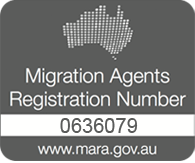
Taxes in Australia are clearly defined and unambiguous to a greater extent. The Tax Administration is spelt-out for Individuals, Companies, Goods and Services, Excise and Capital Gains. A brief of some of the important types of Taxes are provided below.
The Federal Government of Australia collects tax for the services used by the people in the country. The Ttax year starts from 1st July of the current year and ends at 30th June of the subsequent year. Australian Taxation Office (ATO) administers the taxation in Australia.
The type of tax collected depends up on the service, business, and individuals and so on.
Superannuation Tax:
Pension program in Australia is known as Superannuation. The employer contributes to the Superannuation Fund by saving a part of employee’s salary. After the retirement of the employee, the superannuation fund is given to the employee. If the age of retiring person is above 60, then the person need not pay tax. Else, 15% tax is applicable.
Corporate Tax:
Corporate Businesses have to pay 30% tax at flat rate from the earned profit. Corporates should pay the tax to the government before paying the dividend to the shareholders.
Goods and Services Tax (GST)
Australian Government imposes 10% tax on supply of services and goods. This tax is imposed on the business that is registered for Goods and Services Tax (GST). Some of the goods related medical services, educational services, food products are exempted from paying tax. The government also imposes stamp duties on few transactions.
Capital Gains Tax (CGT)
Selling real estate property attracts Capital Gains Tax. The tax is calculated based on the difference between selling price and the cost base of the sold property. The cost base of the property depends on various factors such as purchase value, cost of maintenance, cost of renovation, insurance, and so on. Hence, the higher the costs base of the property, the lesser the CGT.
Excise Tax:
Excise tax is levied on certain goods like petroleum products, tobacco products, and alcohol products.
Property Tax:
Property tax is levied by state governments. The state government collects property tax depending on the land value of the property. Usually, the high value properties like commercial complexes, industries, and residential complexes attract higher tax.
State government levy tax on fire services, which funds the activities of fire department.
Payroll Taxes:
The state governments impose payroll taxes on the employers, when the total amount of wage exceeds the threshold. Each state has its own threshold for payroll taxes.
Income Tax:
Income tax is applicable to the individual residents of Australia.
The marginal tax rates for 2014-15 are given in the table below:
| Taxable income | Tax on this income |
|---|---|
| $0 - $18,200 | Nil |
| $18,201 - $37,000 | 19c for every dollar over $18,200 |
| $37,001 - $80,000 | $3,572 + 32.5c for every dollar over $37,000 |
| $80,001 - $180,000 | $17,547 + 37c for every dollar over $80,000 |
| $180,001 and over | $54,547 + 47c for every dollar over $180,000 |







